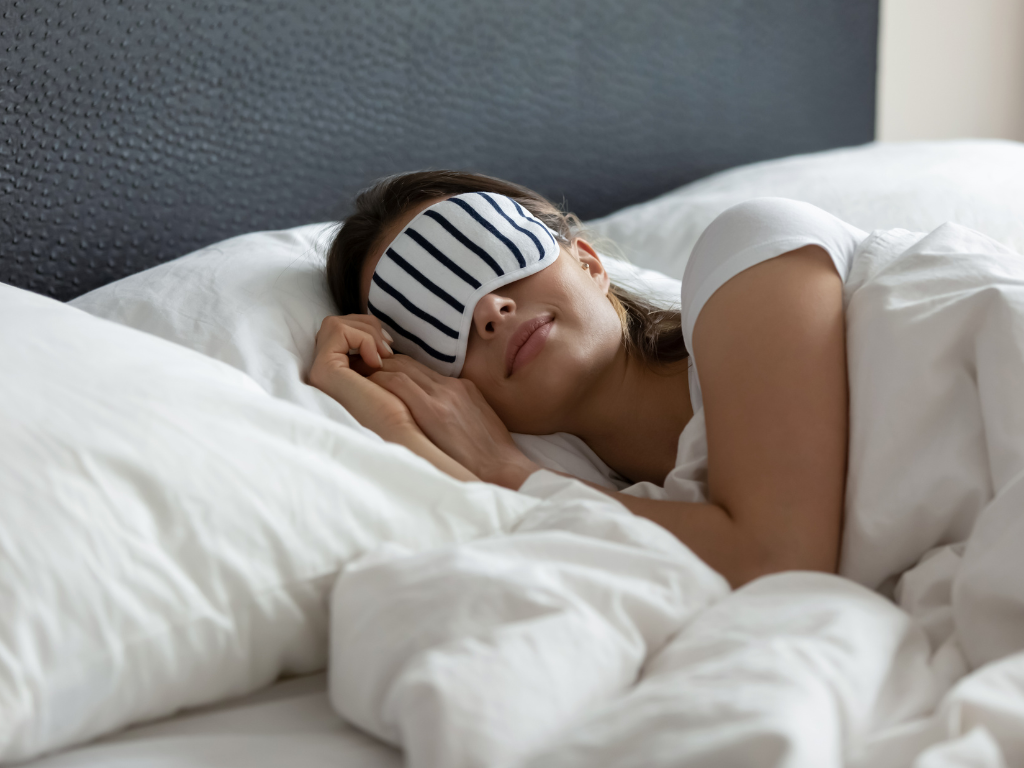
Internal Breath Work —A Small and Mighty Technique for Mental Health
8 July 2023
Acupuncture and Qigong for Stress Relief
5 November 2024Balancing Body and Mind for Sound Sleep
How Critical Sleep is to Your Wellbeing
Sleep is a significant issue in Australia, with nearly half (48%) of adults reporting at least two sleep-related problems [1]. These problems may include:
- Getting too much or too little sleep.
- Poor sleep quality, such as difficulty falling asleep, frequent awakenings, or poor sleep efficiency.
- Doctor-diagnosed sleep disorders, such as insomnia, restless leg syndrome, or obstructive sleep apnoea.
Along with proper nutrition and regular exercise, quality sleep is one of the pillars of health. Sleep plays a vital role in maintaining overall well-being throughout your life. How you feel during the day is influenced by what happens while you sleep. During sleep, your body works to support healthy brain function, physical health, and, in children and teens, growth and development.
While individual sleep needs vary, most research suggests that adults should aim for 7 to 9 hours of sleep each night. However, sleep quality is just as important as sleep duration. Healthy sleep encompasses:
- Adequate sleep duration—between 7 to 9 hours.
- Good sleep quality—uninterrupted, refreshing sleep.
- A consistent sleep schedule—going to bed and waking up at the same times daily.
Sleep gives your body time to heal and recover, which doesn’t happen while you’re awake. Health professionals associate numerous benefits with quality sleep, including:
- Improved memory and performance
- Lower risk of weight gain and better calorie regulation
- Enhanced athletic performance
- Reduced risk of heart disease
- Improved emotional intelligence and social interaction
- Prevention of depression
- Reduced inflammation
- Stronger immune function
Conversely, poor sleep has many negative consequences. Common symptoms include:
- Feeling tired despite a full night of sleep
- Daytime drowsiness and fatigue
- Increased irritability or anxiety
- Difficulty concentrating and memory loss
- Headaches and digestive issues
- Increased muscle tension
Chronic sleep deprivation can further exacerbate these issues and lead to long-term health risks such as:
- A weakened immune system
- Increased risk of heart disease, type 2 diabetes, and high blood pressure
- Impaired metabolism, increasing the likelihood of obesity
- Strained relationships at work and home
- Higher risk of depression and anxiety
Chinese Medicine Perspective: Focus on Balance
In Traditional Chinese Medicine (TCM), balance is a key component of overall health. When your energy (Qi) is balanced, your body functions optimally. Imbalances can lead to health issues, including sleep disturbances.
TCM aligns sleep with the body’s natural rhythms, viewing nighttime as Yin (rest, digestion, and sleep) and daytime as Yang (work, eating, and activity). TCM sleep problems often stem from:
- Stress and depression, leading to Liver Qi stagnation.
- Poor diet, especially junk food, affecting the digestive system.
- Chronic illness or weak constitution, causing Kidney Yin deficiency.
- Overthinking or overwork, which impacts the Heart and Spleen, leading to Blood deficiency and sleep issues.
Restoring balance in these areas helps individuals reconnect with their natural sleep rhythm. I’ve seen this approach work wonders for patients who experience racing thoughts or frequent awakenings due to restlessness or anxiety.
Tips for a Sleep-Friendly Routine
The good news is that many sleep problems can improve or resolve with healthy habits. Here are a few tips to promote better sleep:
- Get at least 20 minutes of morning sunlight exposure.
- Stick to a regular sleep schedule.
- Adopt a relaxing bedtime routine.
- Ensure your bedroom is cool, dark, quiet, and comfortable.
- Avoid screens (TVs, phones, etc.) an hour before bed.
- Exercise regularly, but do so earlier in the day.
- Avoid alcohol, nicotine, and caffeine in the hours leading up to sleep.
For more comprehensive results, addressing imbalances in the body’s organs can be the solution. Acupuncture and Qigong are excellent options for restoring this balance.
Acupuncture: Balancing Mind and Body for Better Sleep
Acupuncture, an ancient Chinese healing practice, has been used for centuries to treat insomnia by balancing the mind and body. This practice involves inserting fine, single-use needles into specific points on the body’s energy channels. Research shows acupuncture can improve sleep by:
- Increasing melatonin production, which regulates sleep cycles.
- Enhancing nitric oxide levels, promoting brain function and relaxation.
- Improving blood flow, which relaxes the body and mind.
- Reducing sympathetic nervous system activity (the fight-or-flight response).
- Regulating neurotransmitters like serotonin, noradrenaline, dopamine, GABA, and neuropeptide Y, all of which influence mood and relaxation.
Qigong: Maintaining Circadian Rhythms by Balancing Qi
Qigong, a non-pharmaceutical therapy rooted in ancient Chinese tradition, integrates body postures, movement, breathing, and meditation to regulate Qi. Regular Qigong practice promotes health, prevents disease, and fosters well-being. By balancing one’s Qi, Qigong helps regulate the Wei Qi in the body’s Yin and Yang meridians, thus maintaining a healthy circadian rhythm.
Incorporating Qigong exercises into your daily routine can help you sleep better and wake up refreshed. People find Qigong beneficial for many reasons, including:
- Relaxation: Gentle movements and deep breathing calm the mind and body.
- Stress Reduction: Meditative practices reduce stress and anxiety, improving sleep quality.
- Improved Energy Flow: Qigong balances and enhances Qi, alleviating tension and fostering well-being.
- Gentle Stretching: Movements release physical tension, preparing the body for rest.
To sum up, sleep supports all aspects of normal brain and body function, so never deprive yourself of sleep and take one step forward by balancing your body and mind.
Reference
[1] Australian Institute of Health and Welfare. Sleep problems as a risk factor for chronic conditions. 26 Nov 2021. https://doi.org/10.25816/d2d7-p797


